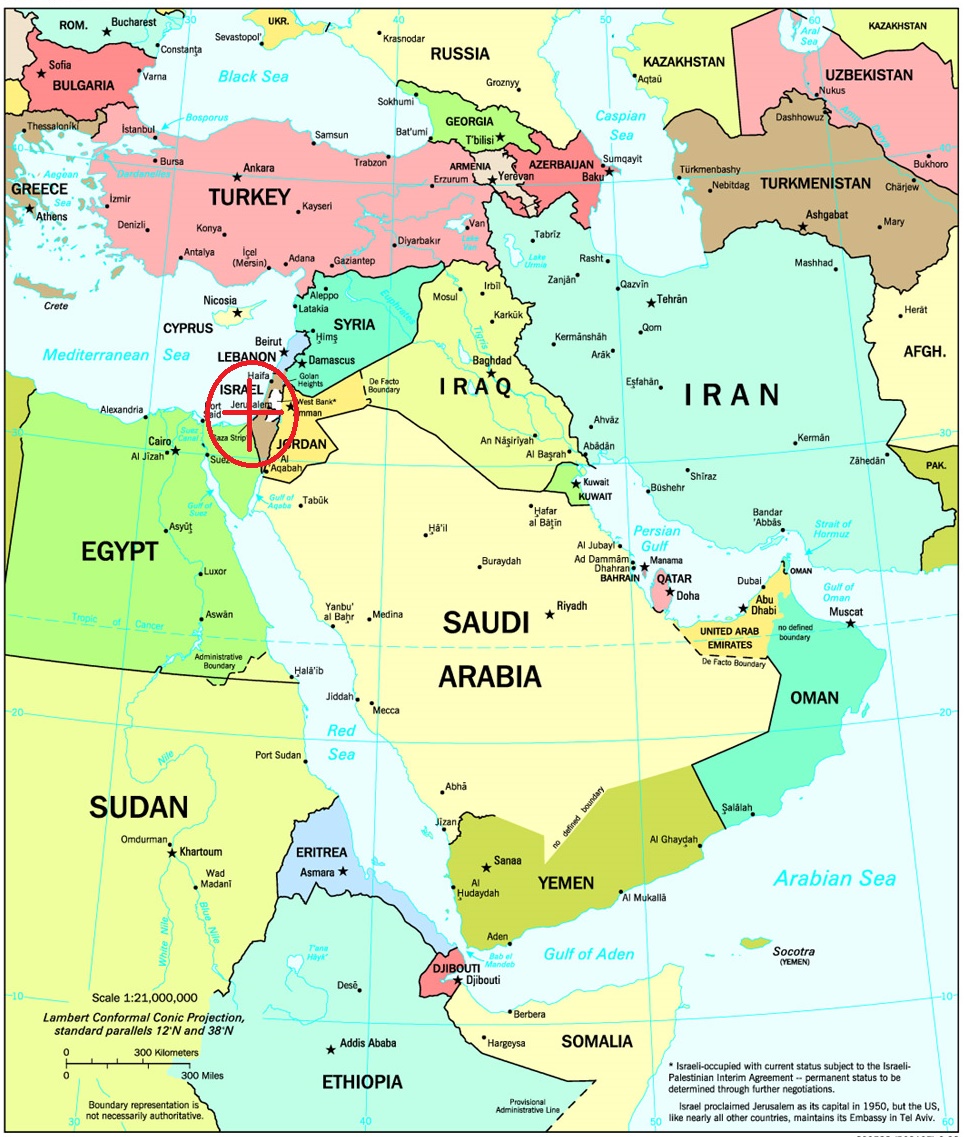Last week, Professors Glen Weyl and Steve Levitsky caused a stir with an op-ed in the Washington Post calling for a boycott of the Jewish state, thus endorsing a double standard.
Some responded by writing about the article’s tendentious mischaracterization of the facts. Others speculated about the personal motives of the authors, who were writing outside their areas of expertise and without original insight. Yet the most important aspect of the article has so far escaped examination.
Like other calls to boycott and punish Israel, the article endorses a double standard. Even after misconstruing the facts and law to make Israel guilty of crimes it has not committed, the authors have to acknowledge they are calling for far harsher treatment of the Jewish state than of the many states that have actually committed crimes worse than those of which they accuse Israel. In the words of the authors, “Israel, of course, is hardly the world’s worst human rights violator. Doesn’t boycotting Israel but not other rights-violating states constitute a double standard? It does.”
It does — yet far from this double standard being a source of embarrassment, the authors claim that it is admirable. They seek to turn one of the great weaknesses of the boycott argument into one of its great strengths. How do they justify this seemingly dubious position? “We love Israel, and we are deeply concerned for its survival,” they write. “We do not feel equally invested in the fate of other states.” In other words, discriminatory double standards are fine so long as the perpetrator claims his intentions are good. They add a codicil: “Unlike internationally isolated states … Israel could be significantly affected by a boycott.”
This argument — let’s name it after the authors of the op-ed and call it the Weyl-Levitsky Double Standard Theorem — is a powerful new way to justify discrimination. Invidious discrimination is thus morally acceptable so long as it is accompanied by a statement of affection for the victim and includes the belief that the victim of the discrimination is likely to be harmed.
Should the United States cut off aid to Israel while continuing to fund the Palestinian Authority, which is authoritarian, deeply corrupt, promotes anti-Semitism, rewards terrorists and their families with cash payments, and hasn’t allowed an election in a decade? Should American companies cut off business ties with Israel while they plow money into Iran and China and Turkey? Should universities divest from companies that work with the Jewish state while maintaining investments in companies that work with Saudi Arabia?
The Weyl-Levitsky Double Standard Theorem tells us the answer is yes — because some of the people calling for this double standard say they really care about Israel.
Think of the applications of this remarkable new principle! Sexists can advocate the invidiously discriminatory treatment of women, as long as they remember to say they’re discriminating out of love and in order to improve the conduct of their victims. Racists can explain that they have to discriminate against African-Americans owing to a profound concern for their well-being. And anti-Semites can call for boycotts of the Jewish state as a demonstration of their love and commitment to Israel and Zionism.
The Weyl-Levitsky Double Standard Theorem can be revolutionary. It can change the way we think about moral problems. It can give bigots license to unleash their discriminatory urges. It can justify the obsessive fixation on certain nations, and it can justify ignoring the many other nations that by any impartial standard are vastly more deserving of reproach. Or, at the very least, it can focus our attention on the absurd and desperate claims made by those attempting to explain away their obsessive hatred of Israel.
Get The Times of Israel’s Daily Edition by email
and never miss our top stories FREE SIGN UP!
Some responded by writing about the article’s tendentious mischaracterization of the facts. Others speculated about the personal motives of the authors, who were writing outside their areas of expertise and without original insight. Yet the most important aspect of the article has so far escaped examination.
Like other calls to boycott and punish Israel, the article endorses a double standard. Even after misconstruing the facts and law to make Israel guilty of crimes it has not committed, the authors have to acknowledge they are calling for far harsher treatment of the Jewish state than of the many states that have actually committed crimes worse than those of which they accuse Israel. In the words of the authors, “Israel, of course, is hardly the world’s worst human rights violator. Doesn’t boycotting Israel but not other rights-violating states constitute a double standard? It does.”
It does — yet far from this double standard being a source of embarrassment, the authors claim that it is admirable. They seek to turn one of the great weaknesses of the boycott argument into one of its great strengths. How do they justify this seemingly dubious position? “We love Israel, and we are deeply concerned for its survival,” they write. “We do not feel equally invested in the fate of other states.” In other words, discriminatory double standards are fine so long as the perpetrator claims his intentions are good. They add a codicil: “Unlike internationally isolated states … Israel could be significantly affected by a boycott.”
This argument — let’s name it after the authors of the op-ed and call it the Weyl-Levitsky Double Standard Theorem — is a powerful new way to justify discrimination. Invidious discrimination is thus morally acceptable so long as it is accompanied by a statement of affection for the victim and includes the belief that the victim of the discrimination is likely to be harmed.
Should the United States cut off aid to Israel while continuing to fund the Palestinian Authority, which is authoritarian, deeply corrupt, promotes anti-Semitism, rewards terrorists and their families with cash payments, and hasn’t allowed an election in a decade? Should American companies cut off business ties with Israel while they plow money into Iran and China and Turkey? Should universities divest from companies that work with the Jewish state while maintaining investments in companies that work with Saudi Arabia?
The Weyl-Levitsky Double Standard Theorem tells us the answer is yes — because some of the people calling for this double standard say they really care about Israel.
Think of the applications of this remarkable new principle! Sexists can advocate the invidiously discriminatory treatment of women, as long as they remember to say they’re discriminating out of love and in order to improve the conduct of their victims. Racists can explain that they have to discriminate against African-Americans owing to a profound concern for their well-being. And anti-Semites can call for boycotts of the Jewish state as a demonstration of their love and commitment to Israel and Zionism.
The Weyl-Levitsky Double Standard Theorem can be revolutionary. It can change the way we think about moral problems. It can give bigots license to unleash their discriminatory urges. It can justify the obsessive fixation on certain nations, and it can justify ignoring the many other nations that by any impartial standard are vastly more deserving of reproach. Or, at the very least, it can focus our attention on the absurd and desperate claims made by those attempting to explain away their obsessive hatred of Israel.



